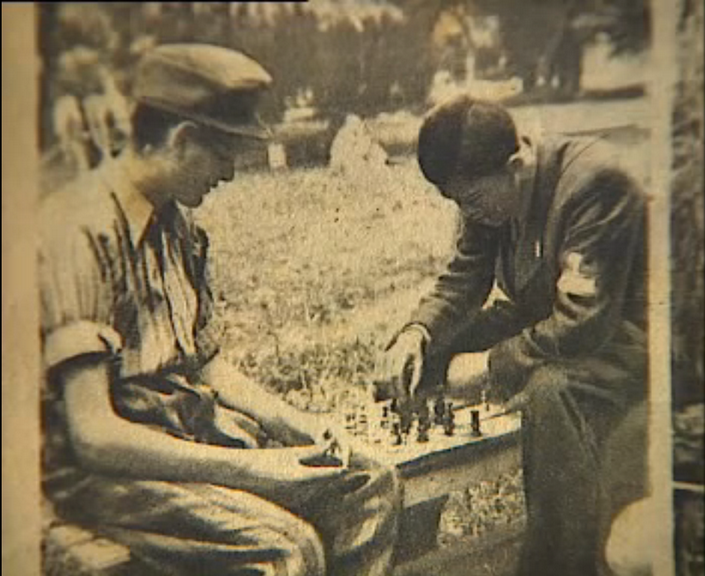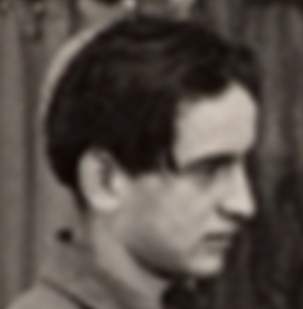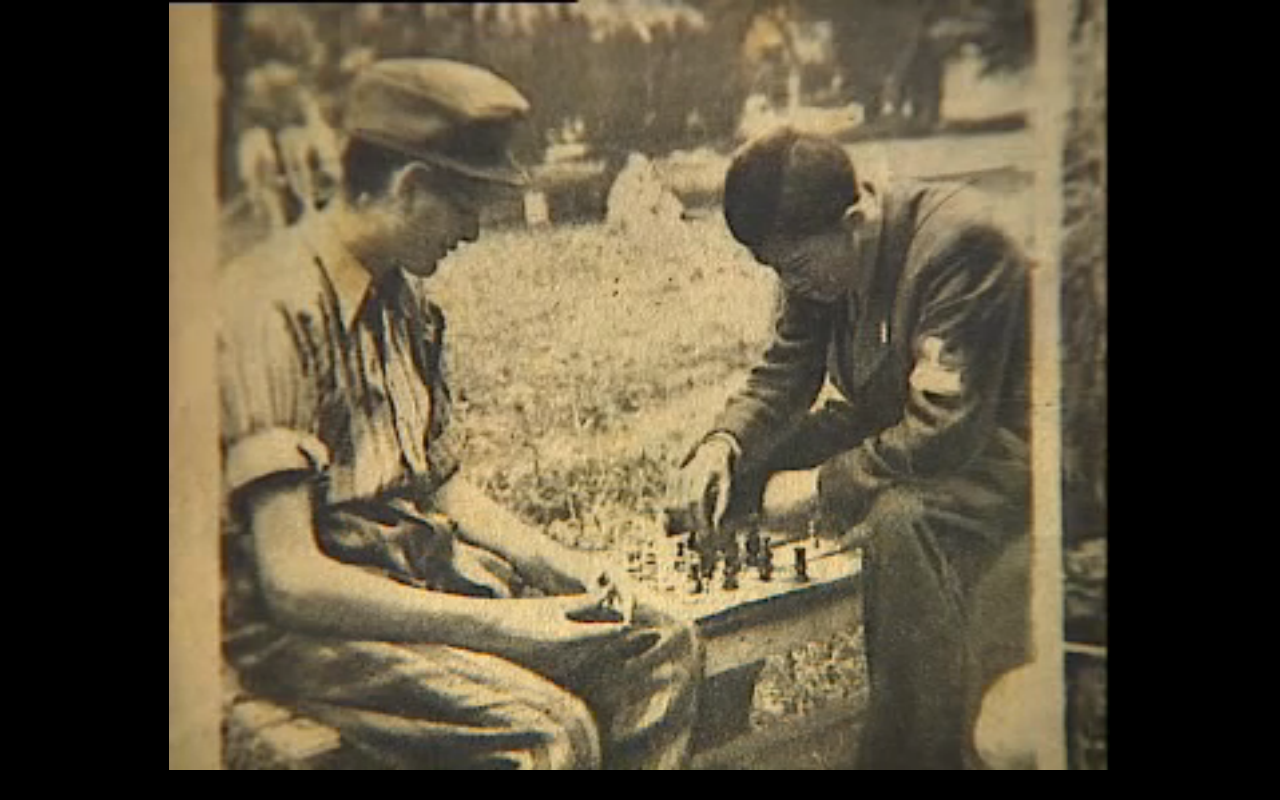Another photo of young Elie Wiesel that is not Elie Wiesel
Saturday, October 1st, 2011
by Carolyn Yeager
Discovered! The newspaper photograph from which Hilda Wiesel recognized her brother Elie at the OSE home near Paris. (Might take some time to download.)
At the end of her video-taped Shoah Foundation testimony in 1995 (the same year Wiesel’s memoir All Rivers Run to the Sea came out), Hilda Wiesel Kudler shows some family pictures: her mother, her father, her sister and brother, and lastly the one above.
Hilda says (translated from French): With the cap, that’s him. My brother with the cap. That is this picture that I saw in Paris and thanks to this picture we met. I was for several months in Paris, as he was too; and we didn’t know we were both alive—and thanks to this picture we met.
Hilda may have been on the look-out for her brother when she saw this photo and thought or hoped it might be him. By contacting that OSE home that was mentioned in the story, and asking about Eliezer Wiesel, they located him there and the brother and sister were reunited. A heartwarming story, but it’s clear to me that the boy in this picture is not Elie Wiesel. Compare the known Elie in the picture below taken at the same time.
Below is an enlargement of the chess-playing boy. (click twice)
This boy is what you’d call gawky, which young Elie was not as we know from other pictures of him at Ambloy during this same few months of the second half of 1945. This boy’s chin is too long and his ear appears to curve outward away from his head. The nose is short. Both boys faces seem to me to have been retouched in a crude fashion to define the features, especially the eyes. The chess player’s arms and legs are unusually long—compare them to the other boy—which is not true of Wiesel in all the pictures of him we have seen. This suggests he is going to be a tall person, while Elie Wiesel has never been more than 5’9” tall. Clearly this lad is a young adolescent, still growing at an uneven rate. If you, dear reader, can believe this is Wiesel, let me hear from you and give me your reasons.
Another point is that Wiesel always wore a beret, and I don’t think he would be caught dead in a cap like that. Nor in those striped pants. He took himself too seriously to be going about in such garb.
Yet, Elie writes in All Rivers that he remembers the day when two journalists took a picture of him when he was playing chess with another boy If that is indeed the truth, the picture taken of Wiesel was not the picture published in the newspaper that Hilda Wiesel saw. As I wrote in Elie Wiesel and the Mossad:
Wiesel says he “rededicated” himself to his sacred studies, and in between played chess. One day:
…a couple of strangers wanted to take pictures as we played. One of them asked some questions in bad German; I answered in good Yiddish. Someone said they were journalists, but I had never met a journalist before; they were of no interest to me, and I didn’t see why I should interest them. (All Rivers, p 113)
Here Wiesel’s orthodox Jewish “apartness” reveals itself. Those in the non-Jewish world were of no interest, unless and until they were needed for some purpose. But the question at hand is whether Hilda still believes this is a photo of her brother, or whether she is in on the creation of the Wiesel family legend. Elie must know it is not him, but he seems to attempt to affirm it is when he writes in All Rivers that “they were of no interest to me”—aligning with the boy in the photograph who does in fact look disinterested.
If Elie Wiesel were honest, he would declare the picture his sister saw was NOT of him playing chess. Would that take too much away from his sister’s feeling of pride or importance that she happened to recognize him in a newspaper? When feelings are more important than truth, the actual truth can be shape-shifted in any number of ways.
This is the way of Jews—not only about their imagined holocaust but concerning their affairs in general—that the rest of us don’t quite understand and should not be forced to go along with. If they want to lie to themselves, fine, but don’t lie to us. We should call them on it. That’s what I think.
Category Featured | Tags: Tags: chess players, Elie Wiesel, Hilda Wiesel, OSE, Shoah Foundation,
Social Networks: Facebook, Twitter, Google Bookmarks, del.icio.us, StumbleUpon, Digg, Reddit, Posterous.




